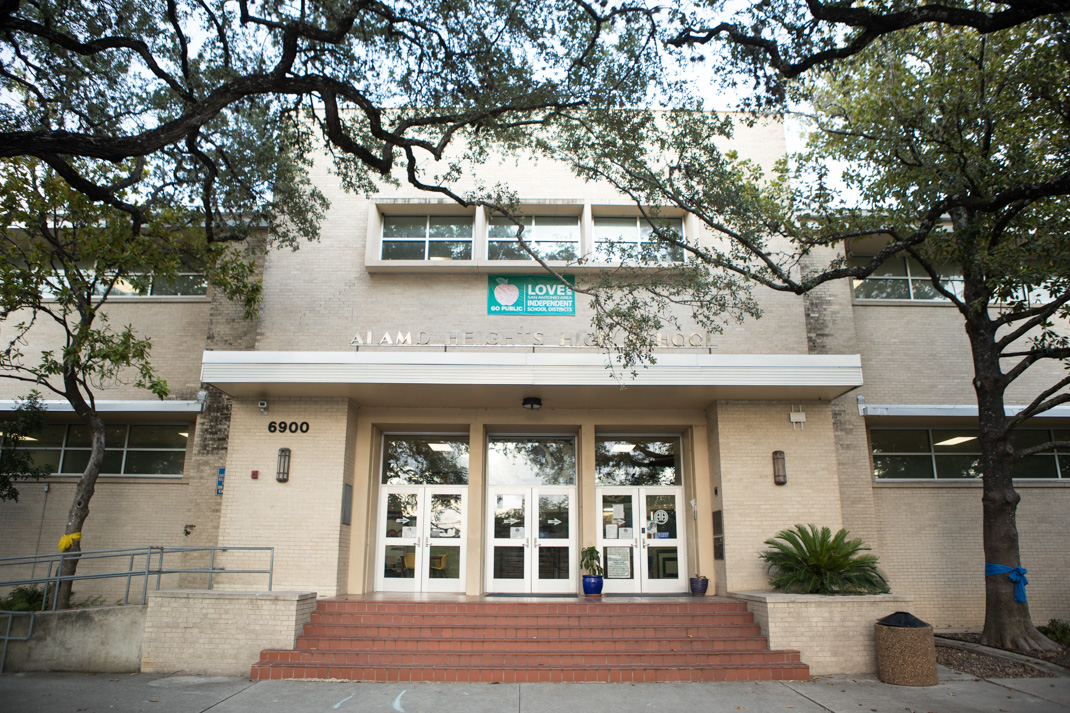A federal judge in San Antonio ordered a preliminary injunction to block some school districts in Texas from implementing a new state law that requires all public elementary and secondary schools to display the Ten Commandments in every classroom.
Passed by state lawmakers during the 89th regular legislative session, Senate Bill 10 requires public elementary or secondary schools to display a 16-by-20 inch framed poster of the Ten Commandments in a “conspicuous place” in each classroom.
The new law also requires school districts to accept donations of posters or money for posters from the community.
Set to take effect Sept. 1, local parents quickly filed suit against school districts they live in to block them from putting up the religious posters.
Parents and advocates against SB 10 say the law is unconstitutional because it violates the Establishment Clause, which outlaws the government from showing any preferential treatment to one religion.
They also take issue with the version of the Ten Commandments outlined in the bill, a Christian Protestant version from the King James Bible that differs from versions of the text that belong to other denominations.
The main plaintiff is Rabbi Mara Nathan, a parent who lives in the Alamo Heights Independent School District and a religious leader at Temple Beth-El in San Antonio. She’s joined by other parents who say they come from several different religions, and were represented by advocacy groups including Americans United, the American Civil Liberties Union and the Freedom from Religion Foundation.
The suit was filed against several San Antonio-area school districts, as well as districts in Houston and Austin. Defendants in the case of Rabbi Nathan v. Alamo Heights ISD are Alamo Heights ISD, North East ISD, Lackland ISD and Northside ISD.
Other defendants include Austin, Lake Travis, Houston, Fort Bend, Cypress Fairbanks and Plano ISDs.
State Assistant Attorney General Biff Farrell, who represented the defendants, said the Ten Commandments were “prevalent” to the country’s history and have been since the founding,
Judge Fred Biery with the U.S. District Court for the Texas Western District issued the ruling after several days of testimony, finding that SB 10 “impermissibly takes sides on theological questions and officially favors Christian denominations over others.”
Biery also said there was insufficient evidence proving the Ten Commandments were fundamental to the country’s founding legal documents.
“The displays are likely to pressure the child-Plaintiffs into religious observance, meditation on, veneration, and adoption of the state’s favored religious scripture, and into suppressing expression of their own religious or nonreligious backgrounds,” he added.
“As a rabbi and public school parent, I welcome this ruling,” said Nathan. “Children’s religious beliefs should be instilled by parents and faith communities, not politicians and public schools.”
Biery’s ruling does not overturn the law, only blocking defendants from putting the religious posters in classrooms until a higher court decides whether SB 10 is unconstitutional or not.
Because of a recent Supreme Court ruling banning federal courts from issuing statewide or nationwide injunctions, school districts not named in the suit — like San Antonio ISD, Edgewood ISD, Judson ISD, and others — may still be allowed to put up the posters.
